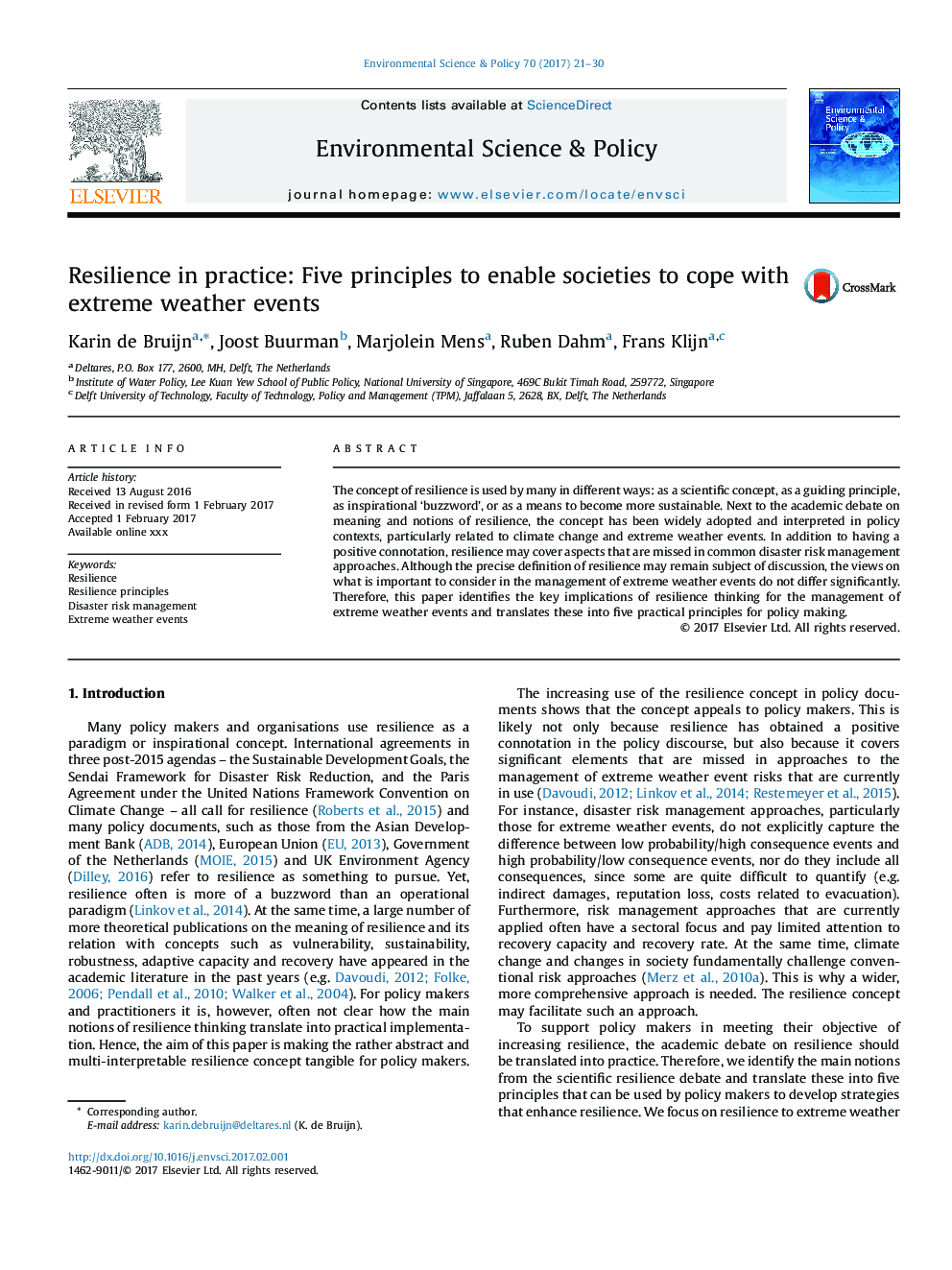| Article ID | Journal | Published Year | Pages | File Type |
|---|---|---|---|---|
| 5115769 | Environmental Science & Policy | 2017 | 10 Pages |
Abstract
The concept of resilience is used by many in different ways: as a scientific concept, as a guiding principle, as inspirational 'buzzword', or as a means to become more sustainable. Next to the academic debate on meaning and notions of resilience, the concept has been widely adopted and interpreted in policy contexts, particularly related to climate change and extreme weather events. In addition to having a positive connotation, resilience may cover aspects that are missed in common disaster risk management approaches. Although the precise definition of resilience may remain subject of discussion, the views on what is important to consider in the management of extreme weather events do not differ significantly. Therefore, this paper identifies the key implications of resilience thinking for the management of extreme weather events and translates these into five practical principles for policy making.
Related Topics
Physical Sciences and Engineering
Energy
Renewable Energy, Sustainability and the Environment
Authors
Karin de Bruijn, Joost Buurman, Marjolein Mens, Ruben Dahm, Frans Klijn,
